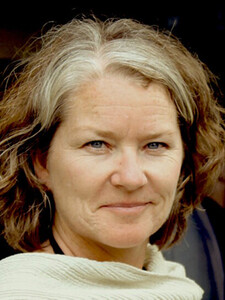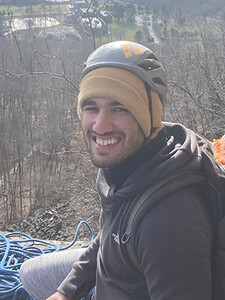LEAP Announces Spring 2024 Speaker Series

The Law, Ethics & Animals Program (LEAP) at Yale Law School has announced the program’s spring 2024 speaker series. The series begins Feb. 22 with a presentation by Inside Climate News reporter Georgina Gustin, who will discuss her reporting on animal agriculture's climate lobbying and misinformation strategies. Other events this spring will examine novel strategies for achieving animal welfare policy advances and how socioeconomic inequality and racial segregation impact biodiversity and conservation knowledge. Register for these events below.
Animal Agriculture's Climate Lobbying and Misinformation Strategies with Georgina Gustin
Feb. 22 at 12:15 - 1:15 p.m. ET
Location: Yale Law School, Sterling Law Building, Room 128
Register (in-person event)
Lunch will be provided

In the past five years, a slew of academic research and several major international reports, including from the United Nations Intergovernmental Panel on Climate Change, have urged people, especially in developed countries, to lower their dairy and meat consumption because of the greenhouse gas intensity of the livestock industry. That, and the resulting media attention, has put these industries and their lobbying groups on defensive footing. According to researchers, the industries have adopted talking points and promoted research that downplays the energy intensity of the industries, and in some cases have pressured lawmakers to tweak legislation or rules that would have urged more plant-focused eating. In this talk, moderated by LEAP Executive Director Viveca Morris, Inside Climate News reporter Georgina Gustin will discuss the recent history of industry and legislative pushback and how these defensive efforts may confuse the public about the impacts of livestock agriculture.
Gustin is a reporter for Inside Climate News, where she covers the intersection of agriculture, food systems and climate change. She has twice been named the North American Agricultural Journalists Association Glenn Cunningham Agricultural Journalist of the Year and has received the John B. Oakes Award for Distinguished Environmental Journalism, among other awards. She has worked as a reporter for The Day in New London, Connecticut, the St. Louis Post-Dispatch, and CQ Roll Call, and her stories have appeared in The New York Times, The Washington Post and National Geographic’s The Plate, among others. She is a graduate of the Columbia University Graduate School of Journalism and the University of Colorado at Boulder.
This event is co-sponsored with the Poynter Fellowship in Journalism, the Yale Animal Law Society, Yale Environmental Humanities, the Yale Journalism Initiative, and the Yale Sustainable Food Program.
The Evolution of Animal Advocacy: Alternative Strategies to Achieve Animal Welfare Policy Advances with Chris Green
March 7 at 12:15 - 1:15 p.m. ET
Location: Yale Law School, Sterling Law Building, Room 128
Register (in-person event)
Lunch will be provided

As animal advocates have attempted to win policy advances through the traditional vehicles of legislation and regulatory action, they often have run into roadblocks within the relevant legislative committees and agencies. These barriers persist despite polling that shows the overwhelming majority of voters support such animal welfare measures. Accordingly, animal advocates have had to creatively develop alternative avenues to ensure such public sentiment is effectively translated into positive policy advances for animals. These alternative means have enabled many in the animal protection movement to achieve concrete successes for farmed animals, captive wildlife, animals used in research, and the availability of alternatives to animal products. Chris Green has been involved in several of these victories, including as a leader of the Animal Legal Defense Fund (ALDF), the inaugural executive director of the Brooks McCormick Jr. Animal Law & Policy Program at Harvard Law School, and a former Chair of the American Bar Association’s TIPS Animal Law Committee. In this talk, moderated by LEAP Senior Litigation Fellow Daina Bray, Green will discuss the evolution of modern animal advocacy and the strategies needed to advance animal-forward policy in the future.
Green is the executive director of the Animal Legal Defense Fund (ALDF). He rejoined the ALDF in September 2023 after establishing the organization’s Legislative Affairs Program and serving as its director from 2013 to 2015. Prior to rejoining the ALDF, Green was the inaugural executive director of the Brooks McCormick Jr. Animal Law & Policy Program at Harvard Law School, where he helped launch the Harvard Animal Law & Policy Clinic and grew the Program from an initial staff of three to more than 30 faculty, staff, lecturers, scholars, researchers, and fellows.
During his animal law career, Green has helped defeat “ag-gag” legislation in several states, helped pass and defend farmed animal protection ballot measures, directed efforts that led SeaWorld San Diego to halt the breeding and import of new orcas, served on a National Academies committee that caused the U.S. Department of Veterans Affairs to stop using dogs in biomedical research, and persuaded the top three U.S. airlines to cease transporting African hunting trophies. Green helped inaugurate the American Bar Association’s TIPS Animal Law Committee in 2005 and served as its chair in 2015. In 2022, the American Bar Association honored Green with its award for “Excellence in the Advancement of Animal Law.” His academic scholarship has been published in the Animal Law Review, and he has consulted on animal legal issues with dozens of major media outlets.
Green is a graduate of Harvard Law School, where he took the school’s first course in Animal Law, and the University of Illinois, where he created the school’s first Environmental Science degree. Green also currently manages an Illinois farm that has remained in his family for 185 years.
This event is co-sponsored with the Yale Animal Law Society and the Yale Sustainable Food Program.
The Social, Economic, and Legal Consequences of Uneven Biodiversity Information in the United States with Diego Ellis Soto
April 10 at 12:15 - 1:15 p.m. ET
Location: Yale Law School, Sterling Law Building, Room 128
Register (in-person event)
Lunch will be provided

Comprehensive biodiversity information across regions is critical for executing ambitious conservation targets and ensuring ecosystem health. Yet access to this information in the United States is shaped by socioeconomic inequality and racial segregation, with the age of digital information exacerbating this disparity. Biased conservation information that neglects certain locations poses a host of threats, those who study the issue note. These dangers include zoonotic disease emergence, spread of invasive species, reduced biodiversity monitoring, and wildlife endangerment, which threaten humans and nonhumans alike. Gathering and analyzing biodiversity data in historically neglected and segregated geographic areas is therefore paramount for avoiding these harms.
In this talk, moderated by LEAP Postgraduate Fellow Laurie Sellars, Yale University Ph.D. candidate and LEAP Student Fellow Diego Ellis Soto will discuss the legal, social, and political consequences of continuing to neglect the biodiversity of socioeconomically disadvantaged and historically segregated areas. He will present various initiatives aimed at generating this valuable data, including federal programs like Justice40 and 30x30, and local initiatives aimed at generating a more just sampling of biodiversity that blends education, racial justice, science, and music.
Ellis Soto, who is from Uruguay, is Ph.D. candidate in Ecology at Yale University and a NASA FINESST Future Investigator. Working at the intersection of ecology, technology, conservation, and environmental justice, he researches how animals move across the world under increasing human threats and a changing climate. In addition, he is increasingly interested in how our access to biodiversity data is shaped by our socioeconomic status and how past and present social inequalities amplify current disparities in environmental sciences.
Ellis Soto is also a music producer, blending sounds from biological concepts and technologies with music theory by, for example, making eight termites jam together or installing microphones on an urban farm to make farm birds sing a song. Ellis Soto’s work has been covered by numerous news outlets, including The New York Times, BBC, ABC News, the Spanish news outlet EFE, Yahoo News, and more. His work on Environmental Justice was awarded the Public Scholar Award of 2023 by the Yale Graduate School of Arts and Science for shaping policy and public discourse. He received a Bachelor of Science in Environmental Sciences from the University of Trier, a Master of Science in Biological Sciences from the University of Konstanz, and a M.Sc. in Ecology and Evolutionary Biology from Yale.
This event is co-sponsored with the Yale Animal Law Society, Yale Environmental Humanities, and the Yale Sustainable Food Program.


